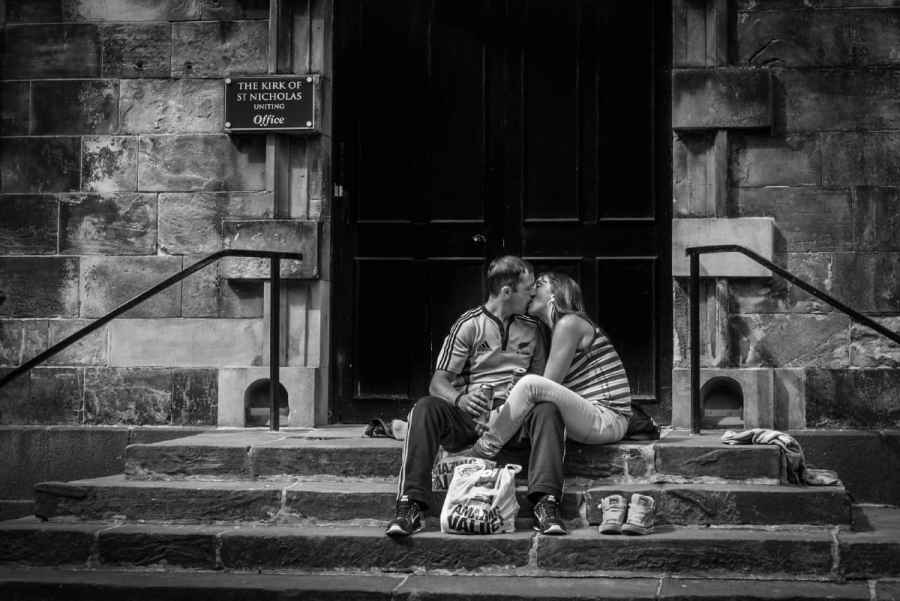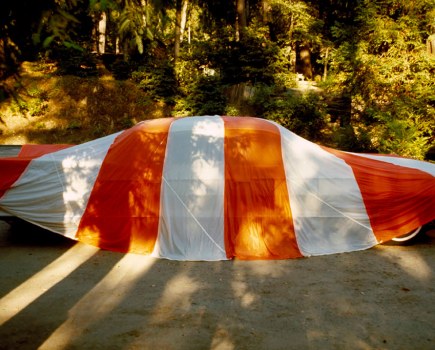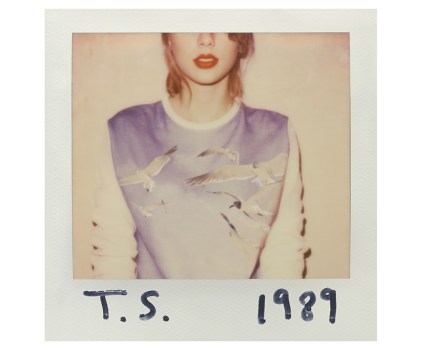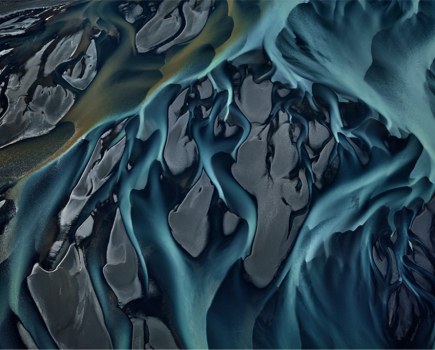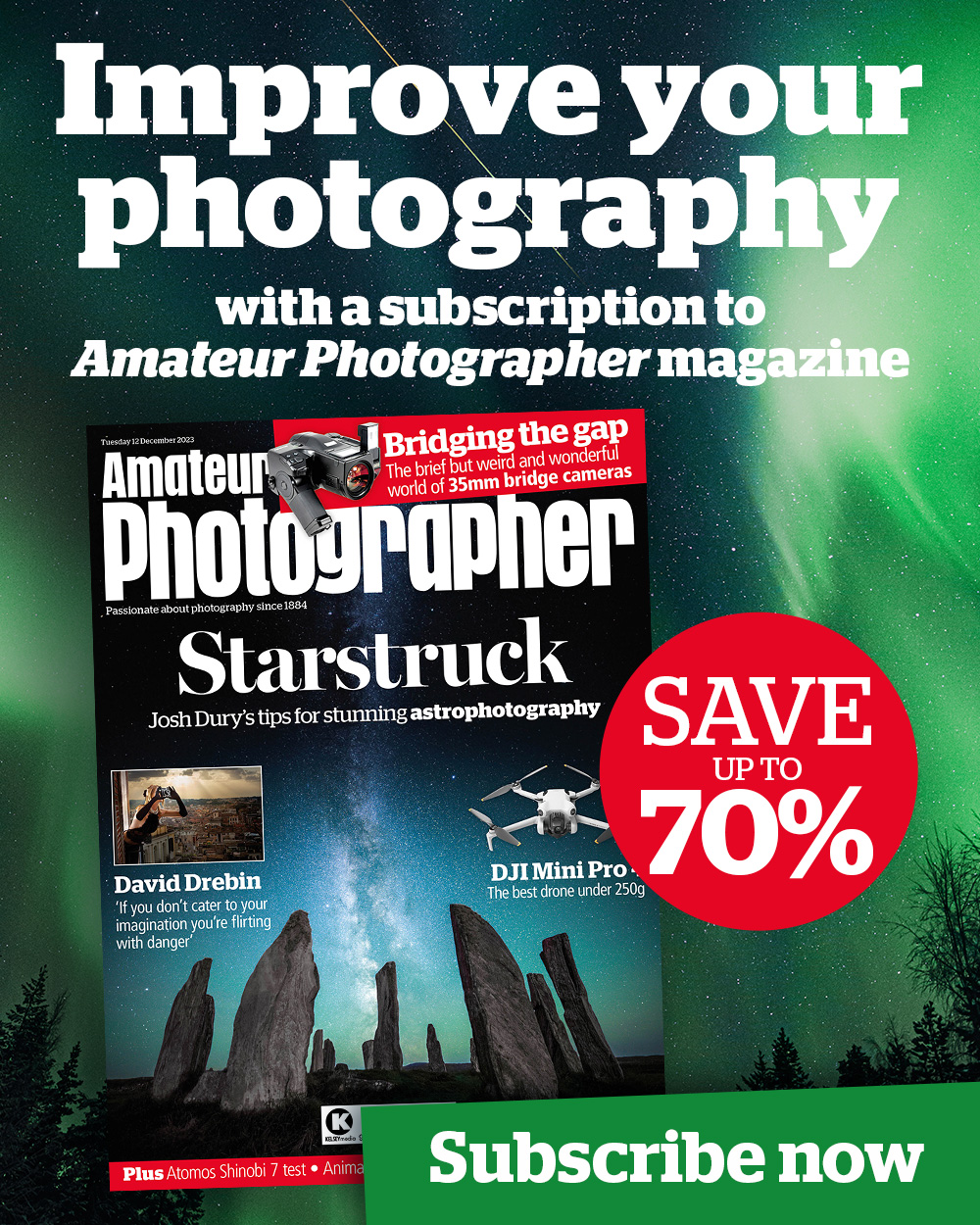It’s hard to pigeonhole Derren Brown: master showman, uber-hypnotist, illusionist or magician doesn’t really do justice to this internationally famous polymath, whose televised and live shows attract massive audiences and publicity.
Derren is also a best-selling author and well-regarded painter, but far fewer people know that he’s a passionate amateur photographer. While Derren has painted seriously and consistently since graduating from Bristol University, he’s had a more chequered history with photography.
‘I’ve always had a lot of cameras, but felt overwhelmed by digital cameras,’ Derren explains. ‘I couldn’t get into them, and this only changed when I discovered Leica cameras. Although I have a Canon EOS 5D Mark III, which I use to take pictures of people I am painting, I don’t understand 90% of the menu system. When I first picked up a Leica, however, it felt simpler and more “manual” – and quicker to use, once I figured out the zone focusing system. You feel like the Leica only does three things, and my relationship with it changed as a result. Leicas are such beautiful objects, too; you are more likely to want to keep one with you, so you take more pictures.’
Derren admits that the relatively high cost of a Leica system also appealed. ‘Because it was more expensive it was more tempting. Once I had bought one, I wasn’t going to be saying, “Oh, I should have bought that other camera instead,” as I knew I had the best one. I came to the Leica system with a sense of awe.’
Stories of the street
As mentioned, Derren uses cameras to shoot subjects before he begins painting them, but his main focus as a photographer is the street. His street photography has been exhibited in London and he has a popular Flickr feed, but for Derren, the experience of taking pictures is just as rewarding as the reception they receive. ‘Street photography on a good day is such a liberating feeling,’ he explains.
‘I used to go out with my head down, particularly when I was on tour, because when people constantly come up to you asking for pictures, it can get a bit much. But as a photographer, I was doing the opposite and felt more open and responsive. I’ve just completed a book about happiness and in there I talk about the Stoic philosophers – they were robust and solid individuals who were also open and connected to people at same time. I feel like this with street photography. You meet people with love.’
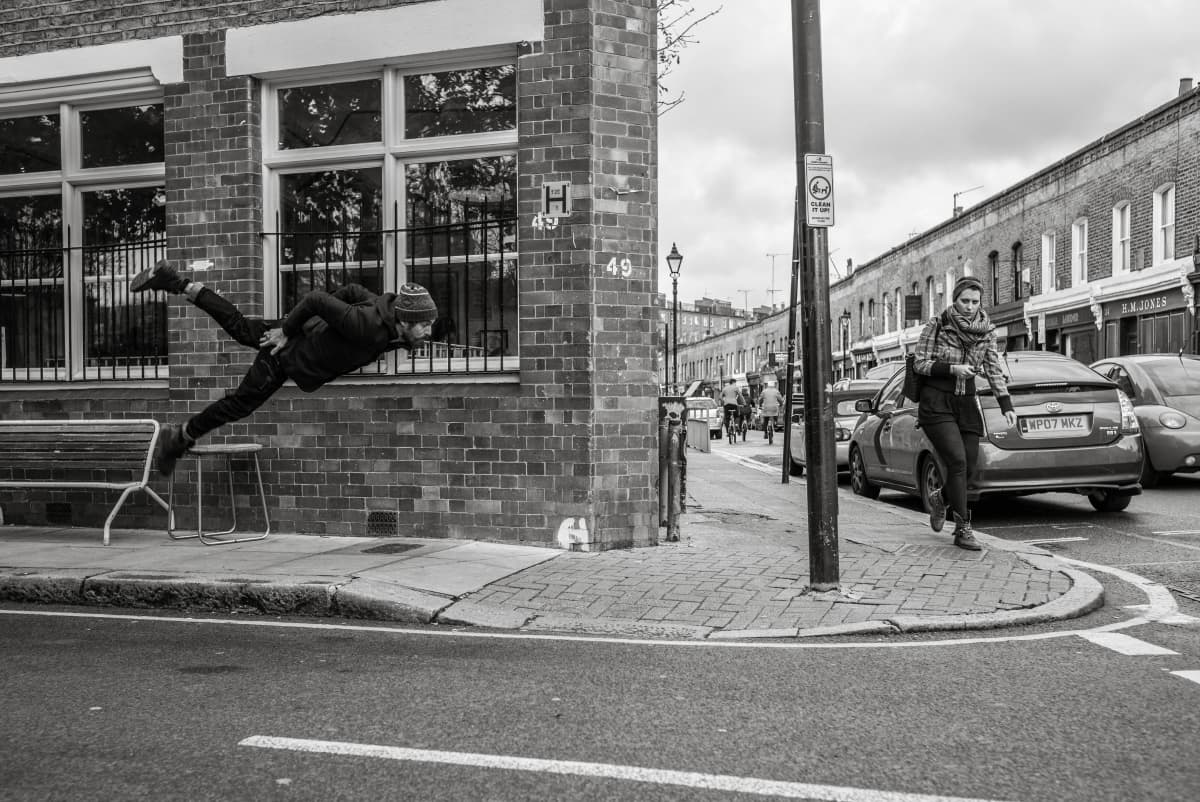
London
Derren is clearly passionate about photography and says: ‘All these experiences, all this hobby, here in this little box.’ But surely it can’t be easy for an international TV celebrity to remain incognito as a street photographer? ‘You would think having a camera would draw attention to me, but it’s actually not the case,’ he says. ‘I tend to get spotted if I’m waiting around for something to happen, but if I’m out taking pictures, people are more aware of the camera. I stay strangely hidden – particularly abroad, where everyone is shooting in some way or another. You also feel less self-conscious with a camera.’
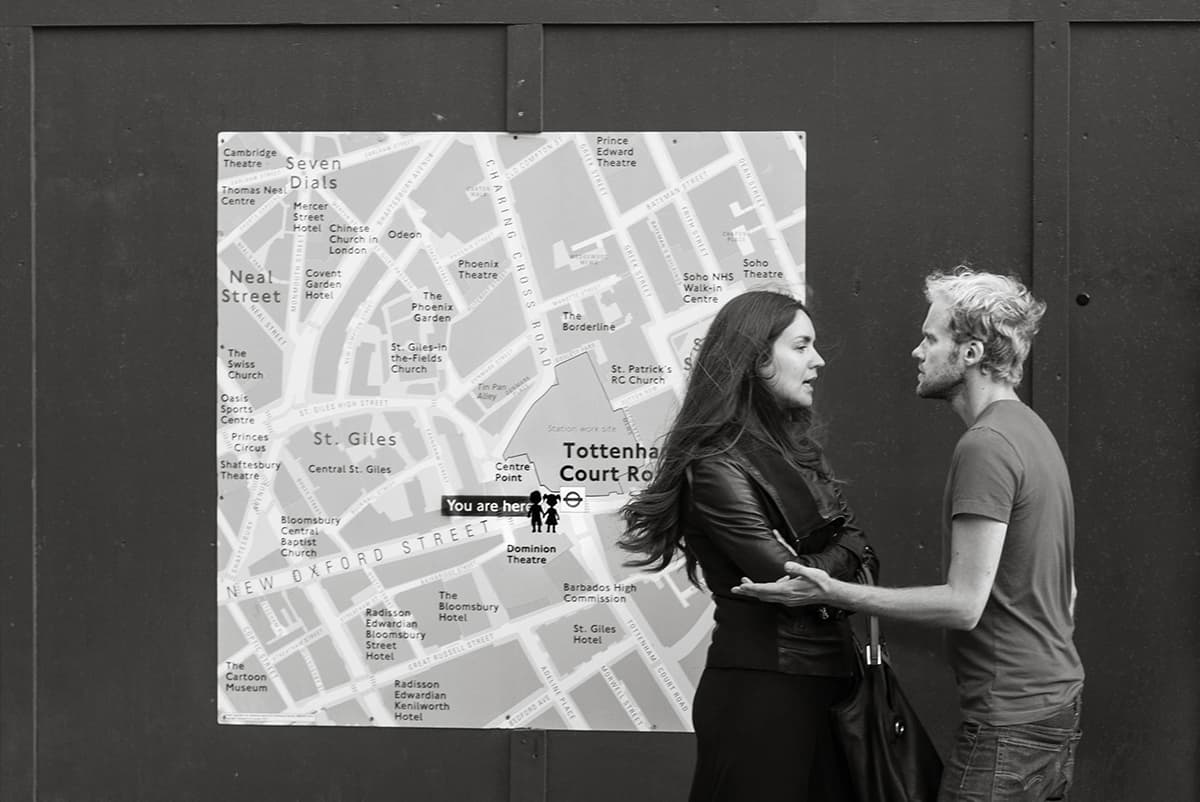
London
While Derren is fascinated by the very in-your-face approach of Bruce Gilden, he is more in the tradition of Henri Cartier-Bresson and Martin Parr, trying to blend into the background and record the decisive moments of everyday life. ‘I don’t go up to people,’ he explains. ‘I very much lurk and wait, and I like the way this slows everything down. I know that going up and talking to the people I shot could elevate the experience even more, and on the rare occasions I have done this it’s been lovely. But I’m usually reluctant as I’m actually quite shy, and not sure where it would lead.’
As with his hero Cartier-Bresson, Derren deliberately dresses down when shooting on the street, but struggles with a choice of headgear, saying: ‘I like flat caps, but they get in the way with cameras and you look like a dick if you turn them around. So now I favour beanie hats!’
Looking for a project
While Derren really enjoys the process of street photography, he is currently looking around for more specific focus. ‘I mainly take pictures on tour, and as it’s the same cities year after year, it can feel a bit repetitive – like you’re taking the same picture,’ he says. ‘So I’m at the point of wanting a proper project. I love the idea of going on a big road trip, but that’s been done many times before. My dad is not well, and my aunt and uncle are in same position, so maybe I could do a photo project on the idea of carers. I’m not sure what I’d do with it, though.’
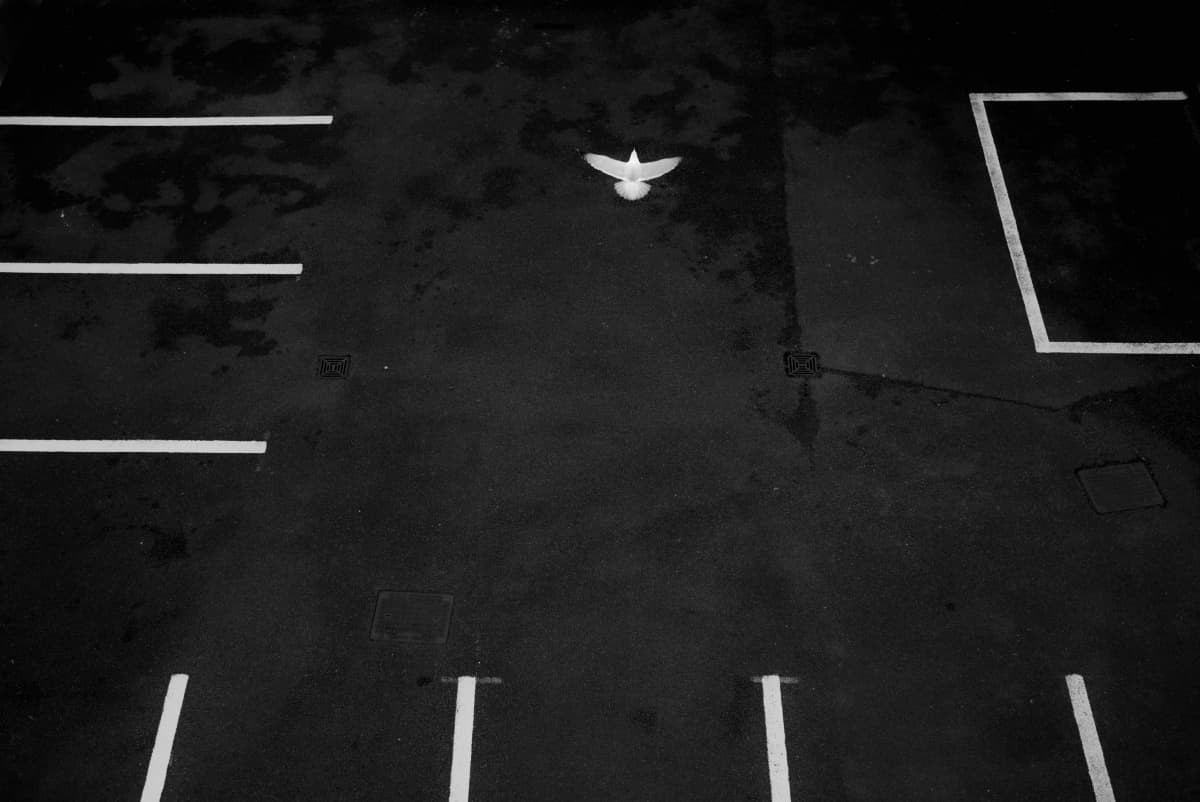
Conwy, North Wales
He’s also very aware that a big photography book or exhibition could end up being more about him than the actual work. ‘There’s always something a bit revolting about an actor or an entertainer trying to do something else,’ says Derren. ‘I write a lot, which is fine, as lots of people write books, but I too get sniffy when Richard Gere, Drew Barrymore or somebody does a book of photographs. The fear of being seen as a mediocre photographer puts me off. To be slated, in a “bless him” kind of way, would be terrible – much worse than a bad review of a TV show, as that is much more of a team effort.’
When it comes to other genres, Derren prefers to take his time and paint people rather than venturing into portrait photography, but he is drawn to landscape work. ‘While on holiday in the Maldives, I met a landscape photographer who goes round the world taking images and then sells them from his gallery in Hawaii,’ he says. ‘I thought, “Buddy, you’ve cracked life!” Even if your pictures were average, that lifestyle makes me very envious – apart from the early starts.’
The big questions
Although Derren is famous – some would say infamous – for playing with our notions of reality, he prizes realism in his images, and avoids heavy manipulation at the editing stage. ‘I sometimes think, well, nobody would notice if I edited that person out of the frame,’ he explains. ‘I don’t, though, as I think it detracts from the craft of photography.’
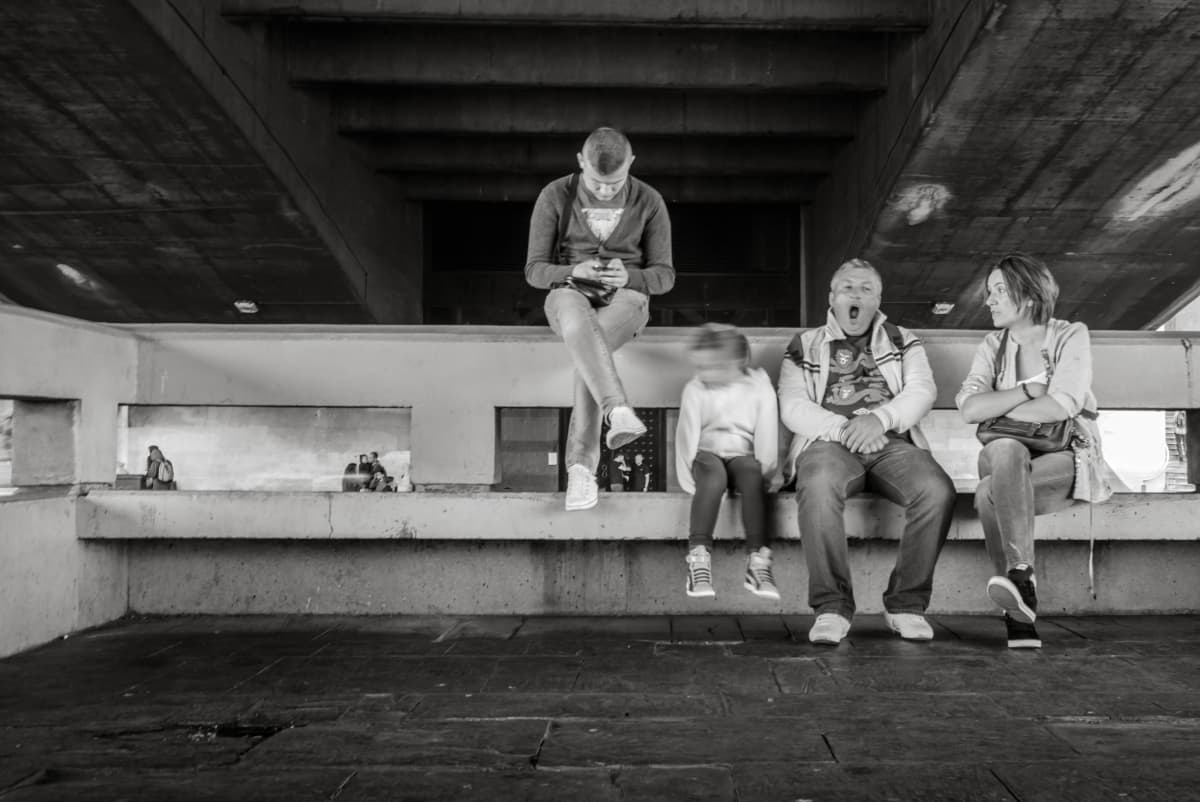
London
Of course, however ‘real’ any photograph claims to be, it’s always an edited version of a bigger reality. Derren keenly appreciates this, and reckons it’s a love of ‘facsimile’ that links his various passions. ‘Magic is something that isn’t real masquerading as real,’ says Derren. ‘Acting, too, and I love watching good actors, and the nature of my paintings is sort of photo-realistic.’
As the interview drew to a close, I got the impression that Derren was keen to enter a new phase of his career. ‘I’d actually much rather be out taking pictures than making a conventional TV magic show,’ he says. ‘Magic is a quick, fraudulent route to impressing people, and I wouldn’t be getting into it now as a 45-year-old man. The shows have grown up with me, and they are now about real people and real dramas. I enjoy the days I can spend writing and working on my photography, it’s much more of a Zen thing and links in with my studies into happiness.’
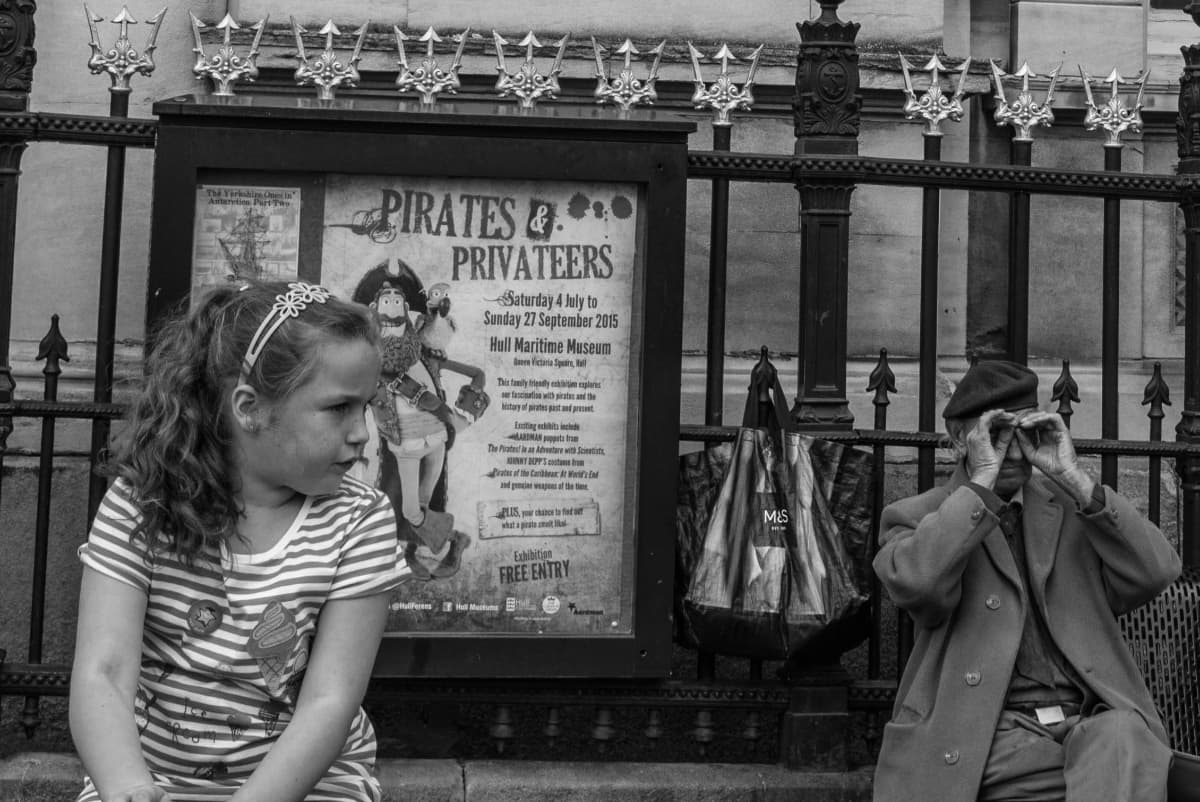
Hull
Returning to the hunger for a big photography project, had Derren ever thought about a portrait series on his illusionist peers? ‘It might be good to do a project on famous illusionists being “ordinary”, but I don’t think magic is interesting enough,’ he says. ‘There is a great expression about magicians guarding an empty safe. They are so secretive about their methods, but when they are revealed, they’re not amazing at all, just pathetic. I’m more interested in life and death things at the moment.’
Derren noticed his mood on a particular day can impact his photography. ‘Since finishing my new book on happiness, I have felt a bit empty creatively, and recently went out with my camera,’ he says. ‘I was waiting around for a picture and suddenly thought, “Isn’t this a bit sad?” It was ironic, having just written about happiness. That said, I got some quite good pictures.’
Happy: Why More Or Less Everything is Absolutely Fine, is published by Bantam Press, ISBN 978-0-59307-619-4, price £20.
Derren’s cameras
‘My main Leica is the M Typ 240 digital, which I used a lot with the 35mm Summilux lens, but I have now changed to a 50mm,’ says Derren. ‘I also use a film M6, with a 50mm, which I am veering towards as my main lens.
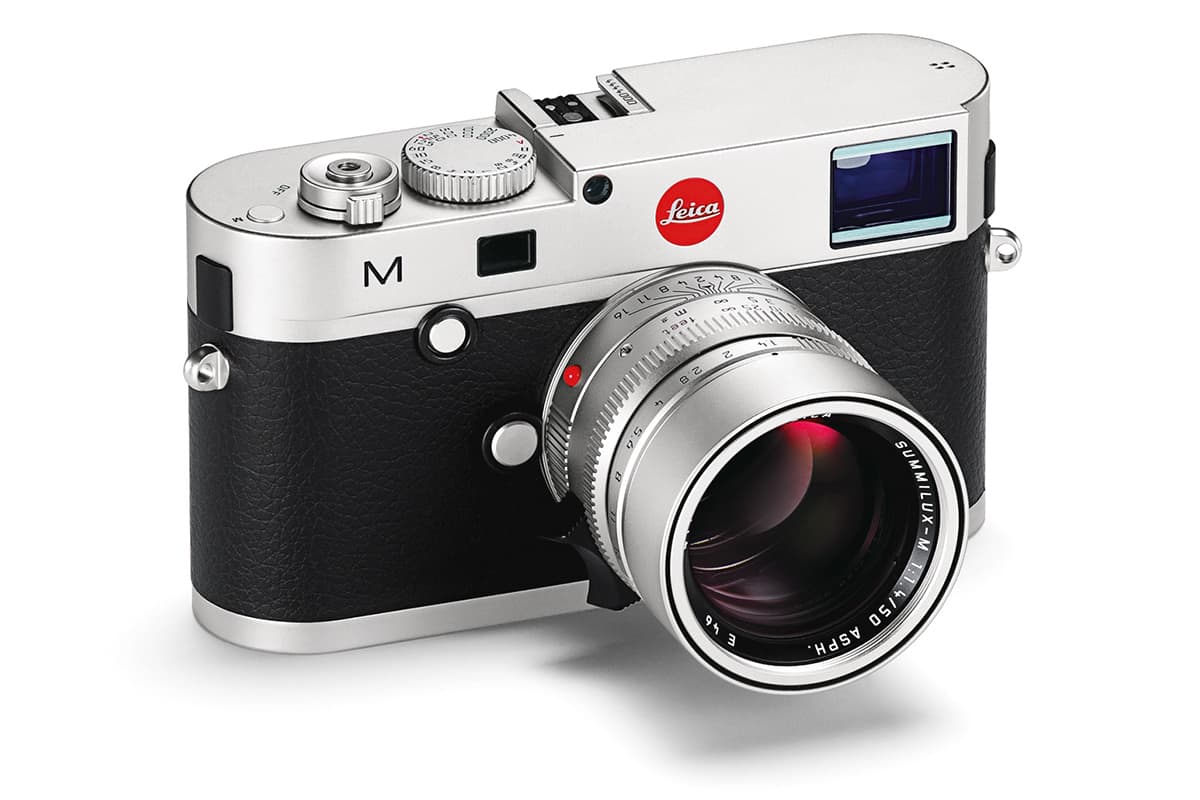
Leica M Typ 240
I use a Canon EOS 5D Mark III to take source shots for my paintings, and am exploring medium-format cameras. I don’t do much editing, but I use Lightroom a lot. I’m getting good results from shooting with colour film on the M6 and then converting the images into black & white on the computer. I did try the Leica Monochrom, but enjoy playing around with different films and then doing a mono conversion.’
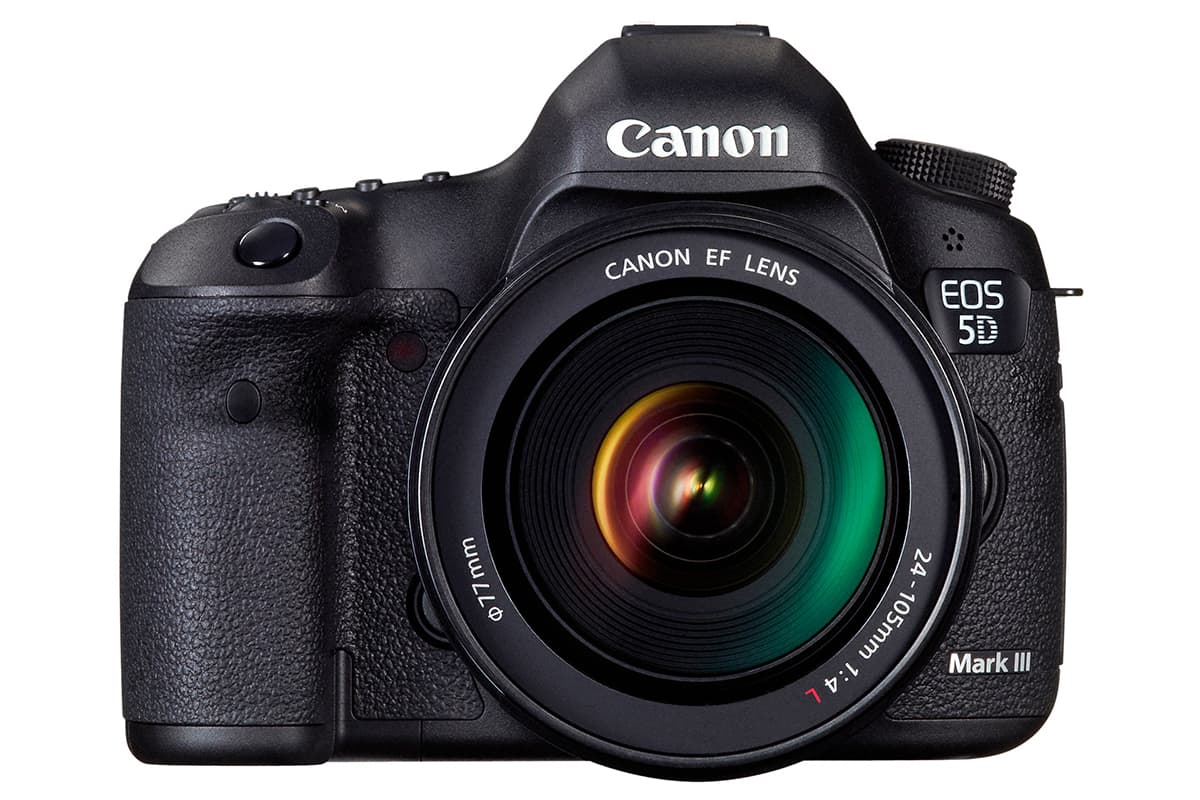
Canon EOS 5D Mark III
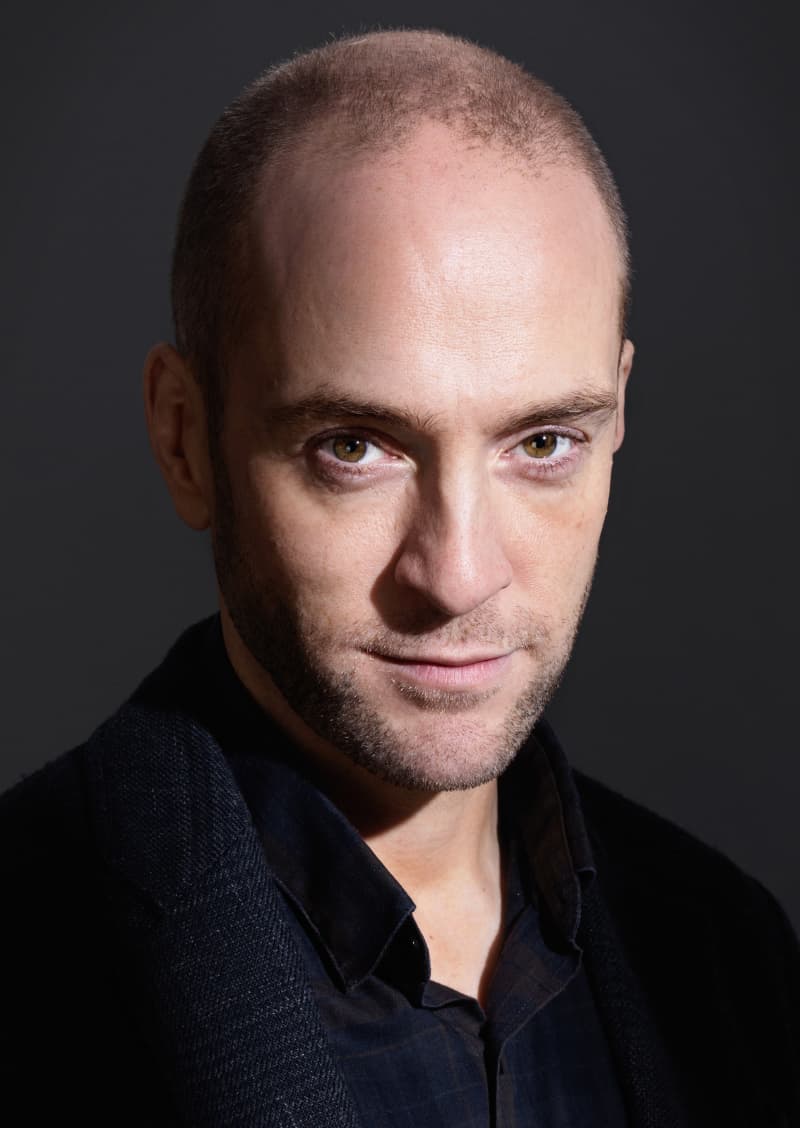
Since his TV debut with Mind Control in 2000, Derren has become the best-known illusionist in the UK. He has produced numerous shows for the stage and TV, and written several books, including Tricks of the Mind and Happy: Why More Or Less Everything is Absolutely Fine. Derren’s photography has been shown at the Rebecca Hossack Gallery in London and he has a popular Flickr feed
All images © Derren Brown

